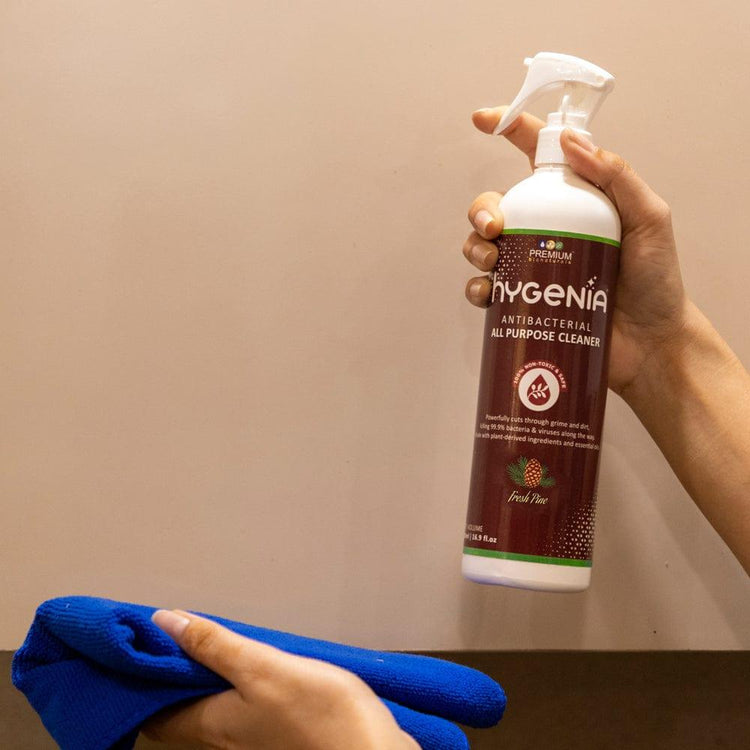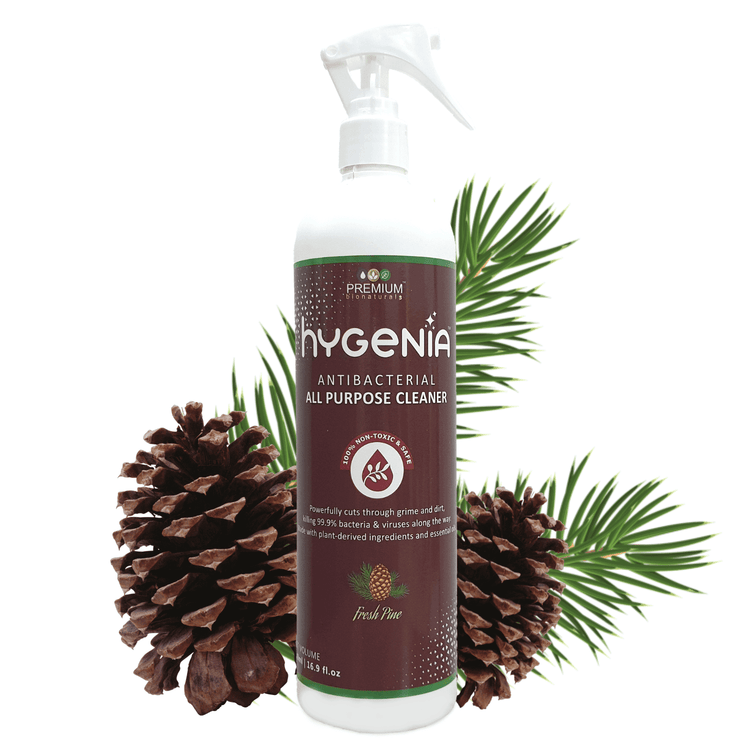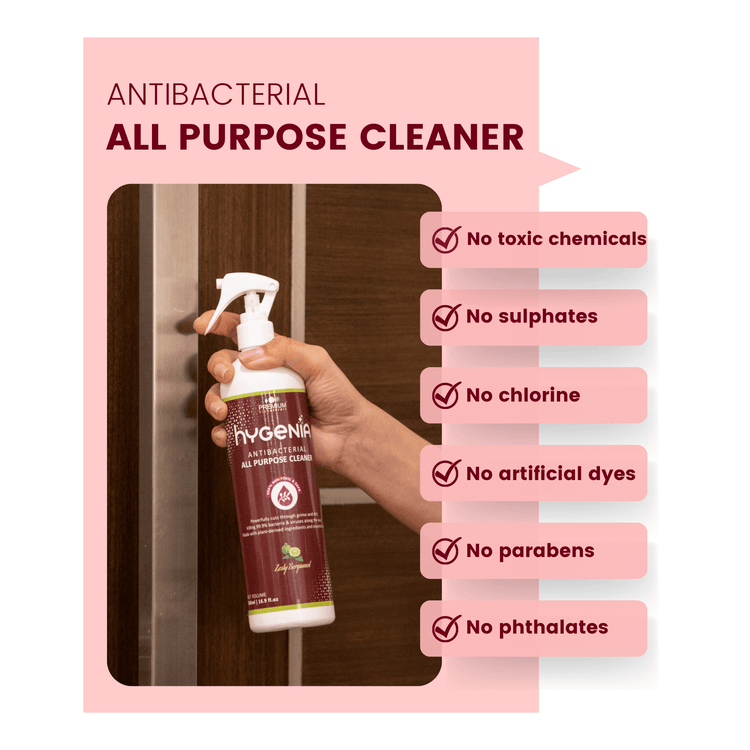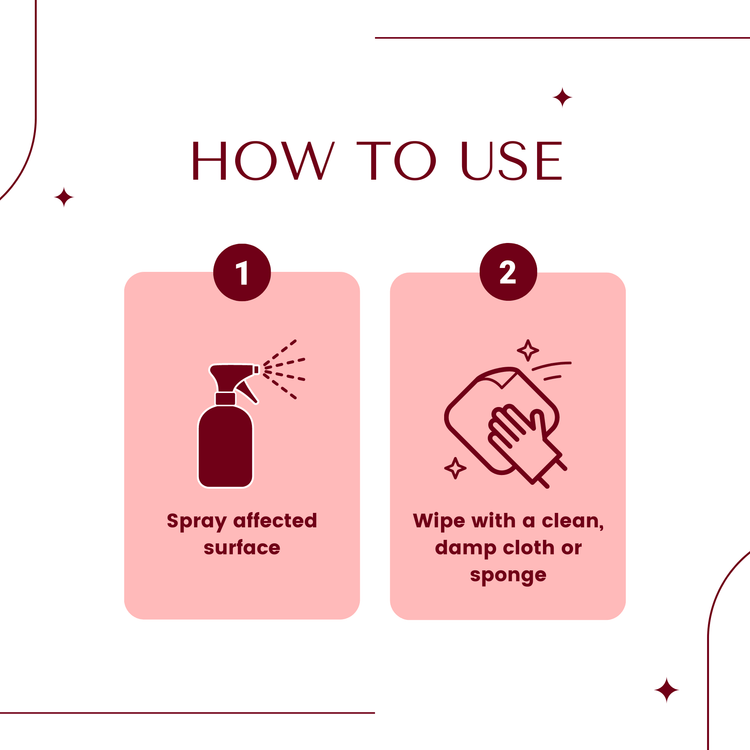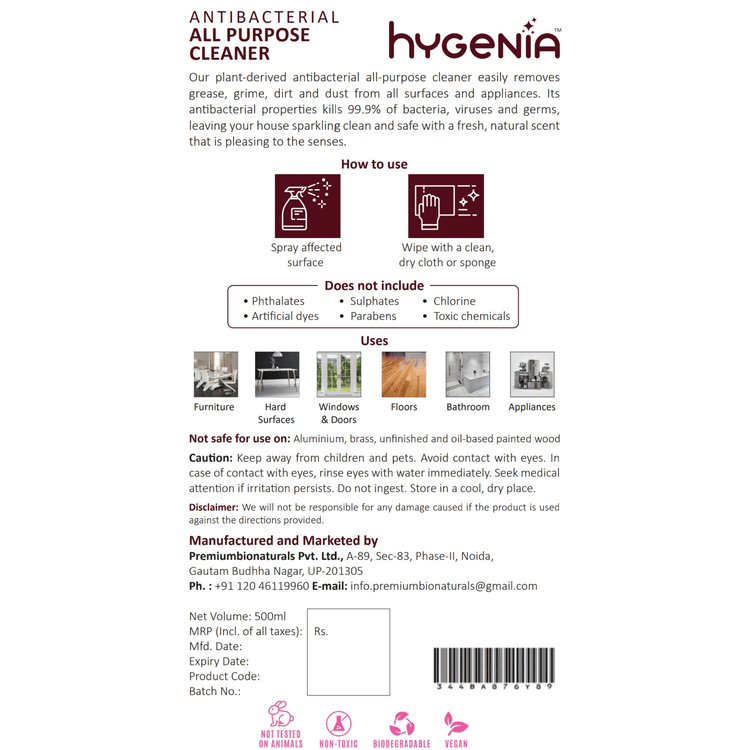Ever walked into a freshly cleaned room and thought, "Wow, it smells so clean!"? Fragrances in cleaning products may add a pleasant scent to your home, but research shows they often come with hidden health risks. Many consumers are unaware that the “fresh” or “clean” scents in these products can release harmful chemicals into the air.
What if that fresh scent isn’t so fresh after all? In fact, many fragranced cleaning products contain toxic fragrances that can impact not only your health but the environment too. And the tricky part? You often won’t find the full list of ingredients on the label.
Here’s what you need to know about the dangers of fragranced cleaning products and why choosing fragrance-free options like Premium Bionaturals is a healthier choice for you and your family.
What is Fragrance?
Fragrance is a term which refers to any substance or mixture of substances intended to convey a scent or mask an odour.
-
Fragrance can come from both natural sources (plants, flowers, foods) as well as synthetically manufactured chemicals commonly found in scented household products.
-
A manufactured fragrance can be composed of tens to hundreds of individual fragrance chemicals, but it is most often simply listed as the generic term “fragrance.”
-
These hidden ingredients may include known perfume chemicals that carry risks to human health and the environment.
So, the next time you see "fragrance" on a label, remember, it’s not a single ingredient, it’s a mystery mix. And that mystery can be toxic and harmful for you and your family.
Top Chemicals to Avoid
Many toxic fragrances are made up of chemicals you’d never knowingly spray around your home. Yet, they’re often there.
Key Chemicals of Avoid:
-
Diethyl phthalate (DEP): Linked to hormone disruption.
-
Butylphenyl Methylpropional (Lilial): A known reproductive toxin.
-
Hexamethylindanopyran (Galaxolide): Toxic to aquatic life.
-
Tetramethyl acetyloctahydronaphthalenes (OTNE): A synthetic musk that lingers in the environment.
-
Hydroxyisohexyl 3-cyclohexene carboxaldehyde (HICC or Lyral): A common skin allergen.
Several of these are banned in many countries but still used in many cleaning products. Doesn’t that make you question what’s going into your air?
Real Health Risks at Home
You might not realise it, but every spritz and scrub could be contributing to silent health issues.
Fragrance Side Effects Include:
-
Skin allergies to fragrance are well documented in scientific literature. 2-11% of the general population experience skin allergies to fragrance.
-
Both asthma and COPD symptoms can be made worse by fragrance exposure.
-
Neurological impacts such as migraines have been associated with fragrance. Reproductive concerns from exposure to certain fragrance chemicals include birth defects, premature birth, decreases in fertility and other effects
A study published in the Journal of Dermatology & Cosmetology indicates that approximately 33% of individuals experience adverse health effects from fragranced products.
Why Women Are More Affected
Cleaning responsibilities still disproportionately fall on women, and so does exposure to harmful ingredients.
Key Points:
-
70% of household cleaning is still done by women.
-
Women are more likely to use heavily scented products due to targeted marketing.
-
Women also face more severe effects from hormone-disrupting ingredients, including those found in perfume chemicals.
-
Brands heavily marketed to specific communities, like the Latinx community, often contain high levels of reproductive toxins.
Fragrance marketing disproportionately affects women both in use and exposure. It’s time for change and awareness.
Greenwashing: "Fragrance-Free” or “Unscented” Isn’t Always Safe
Just because a label says "natural" or "eco-friendly" doesn’t mean it's free from toxic fragrances.
-
To ensure that you are truly using a fragrance-free or unscented product, it's essential to check the ingredient list carefully.
-
Look for products that list "fragrance" or "perfume" as an ingredient, as these are usually synthetic fragrances that can cause skin reactions.
-
If you see these on the list, it's best to avoid the product altogether.
On the other hand, if a product lists natural essential oils as an ingredient, it may still be safe for sensitive skin. If you have particularly sensitive skin, it's best to stick with products that are labelled as fragrance-free and have minimal ingredients.
Safer Cleaning Alternatives
Choosing products without toxic fragrances doesn’t mean compromising on cleanliness.
-
Look for products with full ingredient disclosure.
-
Choose fragrance-free or naturally scented cleaners with essential oils (in small amounts).
-
DIY cleaners made with vinegar, baking soda, and castile soap can be powerful and safe.
-
Switching to safer alternatives not only protects your health but also reduces environmental impact.
-
Start with trusted solutions like our Premium Bionaturals' Antibacterial All-Purpose Cleaner - Fresh Pine, which skips the toxic fragrances for a clean that truly is clean.
How to Read Labels (and What to Avoid)
Understanding product labels can be your first line of defence against perfume chemicals and fragrance side effects.
-
Be cautious of vague terms like "fragrance" or "parfum".
-
Look for labels that list ALL ingredients transparently.
-
Avoid products with synthetic musks or phthalates.
-
Certifications like EWG Verified or MADE SAFE can help identify safer options.
The fewer the ingredients and the more recognisable they are, the better. Labels shouldn't read like a chemistry textbook, if they do, it might be time to reconsider.
Frequently Asked Questions:
Q1) What are the health risks of fragrance?
A) They can disrupt the hormone system. Some are phthalates, which can harm the reproductive system.
Q2) Are fragrances bad for lungs?
A) Yes, Chemicals used to add scents to products can cause serious health problems for some people, especially for people with lung diseases such as asthma or COPD.
Q3) What are the problems with fragrance?
A) Fragrances are highly toxic and can cause allergic reactions
Q4) Is it toxic to smell perfume?
A) Perfumes often contain endocrine disruptors and other toxic ingredients that can linger in the bloodstream.
Your home should be a safe space, not one filled with invisible risks. From hormone disruptors to skin allergens, the risks linked to fragrance side effects are too serious to ignore. We hope this guide has shed light on what’s lurking in those sweet-smelling bottles and inspired you to think twice the next time you shop.
Curious about safer alternatives? Start reading labels, demand transparency, and choose products that prioritise your health—like those from Premium Bionaturals. Because a clean home shouldn’t come at the cost of your health.







